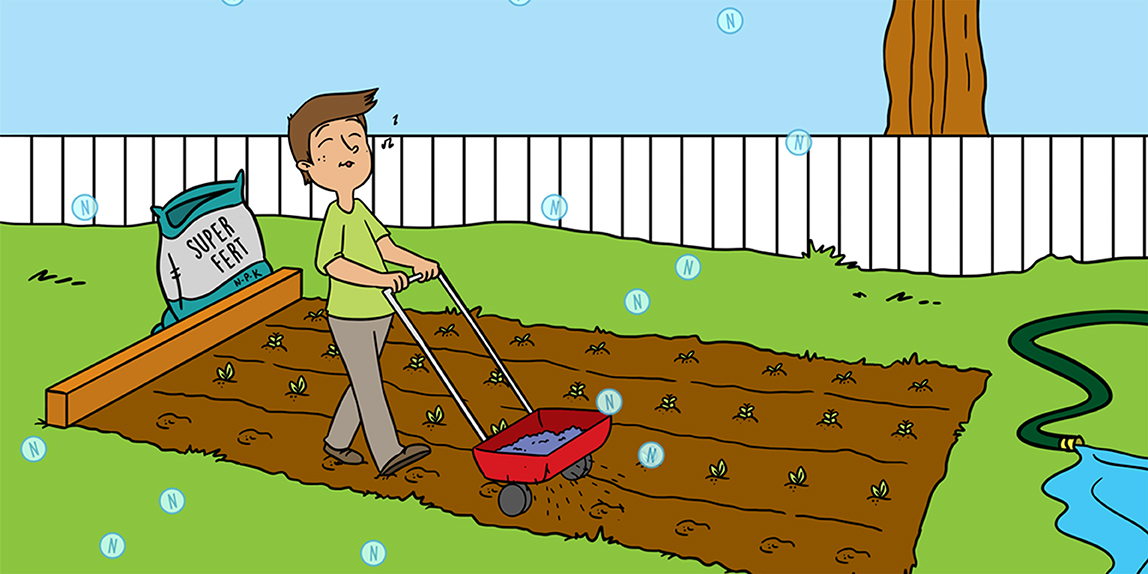The application of too much fertilizer not only affects the environment we live in, it also damages the plants we are trying to maintain. Heavy fertilizer applications may lead to nitrogen leaching into ground water and phosphorus washing into surface water.

Over fertilization often leads to excessive plant growth that can cause a variety of problems. Some vegetable plants, like tomatoes, with too much growth will not produce blooms so production is delayed.
Excess fertilizers, when washed into lakes and ponds, may result in algae blooms. These algae blooms may deplete oxygen in the pond and can cause fish kills.
One common overuse is fertilizers in the lawn. In order to get a nice green lawn, many homeowners believe they need to put out high fertilizer rates.
However, over-fertilized lawns are more prone to diseases like brown patch, pithium, and helminthsporium. Placing too much fertilizer around plants can lead to fertilizer burn.
The high amount of salts associated with over fertilization can disrupt water uptake by the roots. Plants with fertilizer burn will often have leaf scorch type symptoms.
Over fertilization often leads to excessive plant growth that can cause a variety of problems. Some vegetable plants, like tomatoes, with too much growth will not produce blooms so production is delayed.
Bushes and shrubs with dense canopies are more prone to disease problems because they do not dry out as quickly as plants with open canopies.
In order to maintain healthy plants, just remember that a little bit of fertilizers can go a long way.
Read more at: https://wilkes.ces.ncsu.edu/2016/04/too-much-fertilizer-is-not-a-good-thing/
